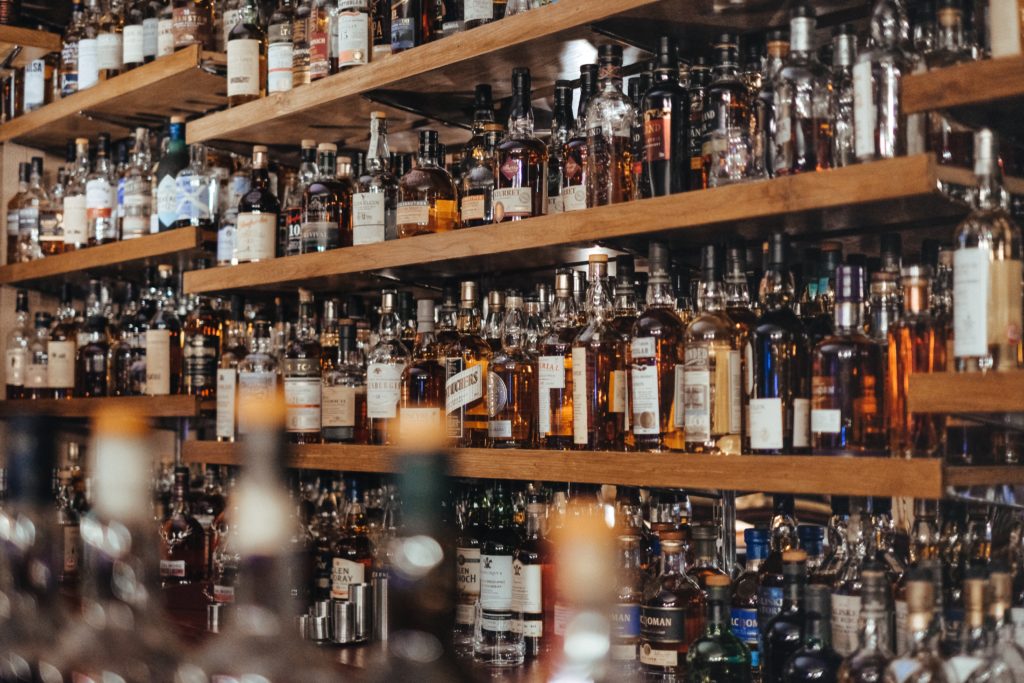- 604-362-9571
- Monday - Sunday
Blog

Does Alcohol Really Affect Fat Loss?
- by Michelle
- November 16, 2019
Does Alcohol Really Affect Fat Loss?
I get this questions from clients all the time, especially in the days leading up to long weekends! Yes, it’s always nice to be able to “cheat” on your clean eating plan once and a while to enjoy a few cocktails with friends (or more than a few for some…); however, everyone wants to know how will this hinder my fat loss efforts?
THE MILLION DOLLAR QUESTION!
Well we have all heard or said these statements “consuming alcohol is consuming empty calories”, “if you are going to drink stick to hard alcohol because beer is more fattening”, “wine is good for my heart right?”, and the best one “if I only drink once a week and just go hard on that one day, it can’t affect me that bad right?”
These are all common questions and statements that are thrown around to try to make it “OK” to fit alcohol into a balanced lifestyle and still be successful with weight loss efforts.
Time for me to break it down for you!

Here are the main problems that come along with alcohol consumption:
1. All Willpower goes out the window!
How many of you have been out on a Saturday night and had a few drinks and wake up the next morning thinking “did I really eat that at 3:00 this morning?” or at a house party with a table full of calorie dense appies and desserts that you end up paying more and more visits to as the night goes on and more drinks are consumed? All the willpower you have during the week seems to go out the window (eating without thinking), so it might not be just the alcohol that will hinder your fat loss efforts, it will be the food you consume when when drinking alcohol.
2. The body will processes alcohol first, before fat, protein, or carbohydrates
Studies have found that consuming alcohol will slow down the burning of fat, because once alcohol is consumed the body will process the alcohol first before before fat or carbohydrates. So just think about what “just one glass of wine” each night is doing to your fat loss efforts? Our main goal when fueling our bodies and working out is so that our body goes to stored body fat as our main fuel source (hence burning fat = weight loss = inches lost); however, if alcohol is in the system that will not occur as easily.
3. Alcohol = Empty Calories
Some cocktails contain fats and sugars (if it tastes really good, it’s probably loaded with sugar!) and then wine and beer are higher in carbs. Carbs release insulin in the body which increase fat storage and then fats will be stored right in fat cells. Remember, this is in regards to the carbs and fats in alcoholic beverages (empty calories), not the carbs and fats in actual foods. The carbohydrates and fats in actual foods (brown rice, quinoa, avocado, nut butter etc.) is accompanied by other nutrients and the body can better process these calories.
Let’s think about it for a minute:
One Can of Beer = 153 calories and about 13g of carbs
One Can of Light Beer = 105 calories and about 6g of carbs
One Glass of Red Wine = 123 calories and about 4.5g of carbs
One Glass of White Wine = 120 calories and about 5.5g of carbs
One Ounce of Vodka = 64 calories and 0 carbs
One Ounce of Rum = 64 calories and 0 carbs
The average person might consume 3-4 beers or glasses of wine on a night out, this would equal into approximately 500-600 empty calories per night. If you drink 2-3 times per week this would equal an extra 1500-2000 calories per week (not including what you eat when you are drinking!). 1 pound of fat in the body = 3500 calories —- hmmmm? So if you are not exercising enough to counteract this increased calorie consumption it could cause an increase in weight and body fat.
What Can We Do About This?
Well first things first, obviously is if you are really serious about your fat loss efforts the best way to maximize your efforts is to cut out alcohol completely; however, a healthy balance between enjoying a few cocktails with friends and still losing weight can be found.
Alcohol does have a large influence in celebrations and social gatherings, so if you refuse to completely cut alcohol out of your life there are some guidelines you can follow to stay on track with your goals:
1. Choose one night per week to have a few cocktails
2. Drink alcohols with lower caloric value (such as wine or light beer) and mix hard alcohols with lower calorie beverages such as club soda or water (vodka water anyone?).
3. Try to drink water throughout the evening and in-between drinks. This will not only decrease the possibility of a hangover (which will hinder your workout efforts the next day), but will also keep you feeling full and less likely to snack on “bad” foods.
4. Eat healthy earlier in the day, get a workout in that day, and only keep healthy snacks around you while drinking!
In conclusion, if you are looking to lose weight and improve performance, the best thing to do is cut out alcohol completely; however, if you have a special event follow the rules above to keep your social life, but also stay on track with weight loss goals!
It’s all About Healthy Balance!!!







0Comments